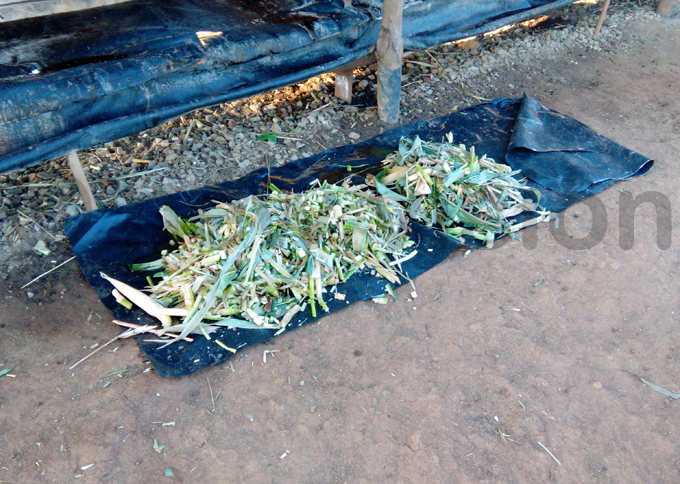For the love of rabbits
Oct 28, 2016
The most compelling case for rabbit breeding is the quick production and gestation period

For a graduate of Finance and Accounting, one would think Mungudit Curtis' first love is accountancy or something in that line.
Far from what he studied at university, the 23-year-old's first love is rabbits.
Mungidit is a field officer of Vert Fields Ltd which runs a small demonstration farm at Namrwodho near Nebbi town where he not only breeds rabbits, but also supports other people who are interested in looking after rabbits.
So why did Mungidit choose to breed rabbits, as opposed to chicken or even goats?
"Not many people have rabbits for commercial purposes. And besides, in terms of nutrients, rabbit meat is better than chicken, pork, and goats meat," he explains.

Hay ready to be fed to the rabbits. (Credit: Billy Rwothungeyo)
Mungudit also argues that management of rabbits, especially when it comes to feeds, is also quiet easy, contrary to what many people think. Besides hay, he reasons that there are other food sources for rabbits.
"Interestingly, looking after rabbits is simpler compared to chicken for example. If you in this part of the country, you do not need to spend money on feeds, you just look for weeds like black jack, milk weed. You just go to the bush and get these," he says.
Perhaps the most compelling case for rabbit breeding fronted by the young graduate is the quick production and gestation period of the little animals.
"Almost every month, rabbits the rabbits are producing. After three months, the rabbits are ready for sale."
He sales a pair for sh30,000 for the exotic breeds, and about sh20,000 for the local breeds. Nothing goes to waste with Mungudit, he even sells rabbit urine for sh10,000 per twenty litres.
Mungudit uses the droppings for manure.
